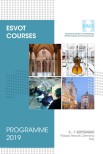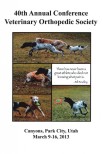Objective—To evaluate the use of technetium Tc 99m–labeled EDTA-biotin monomer (99mTc-EB1) as a scintigraphic imaging agent for soft tissue inflammatory lesions in horses.
Animals—6 healthy adult horses.
Procedures—First (phase 1), the agent's safety and blood-tissue clearance and an appropriate imaging protocol were determined in 6 horses. Each horse was injected with 99mTc-EB1 (1.1 GBq, IV, once); images were acquired at intervals during the following 24-hour period. Subsequently (phase 2), inflammation was induced via injection of 200 mg (10 mL) of mepivacaine (0.4 mg/kg) into the right neck musculature and perineurally in the proximal palmar metacarpal region of the right forelimb of 2 horses. Six hours after mepivacaine injection, 99mTc-EB1 (2.2 GBq, IV, once) was administered; 8 hours after injection, comparative soft tissue images were acquired after administration of technetium 99mTc-hydroxymethylene diphosphonate (99mTc-HDP; 7.4 GBq, IV, once).
Results—After injections of 99mTc-EB1, physical examinations, CBCs, and serum biochemical analyses revealed no abnormalities in any horse. Blood clearance of 99mTc-EB1 was rapid (A phase, 2.2 minutes; β phase, 58 minutes). Soft tissue uptake of 99mTc-EB1 was immediate and persisted for as long as 4 hours after injection. At 6 hours after IM and perineural mepivacaine injections, mepivacaine-induced inflammation was detectable by use of 99mTc-EB1.
Conclusions and Clinical Relevance—Results indicated that 99mTc-EB1 is safe for use in horses and can identify soft tissue inflammation without concurrent uptake in bone. Compared with 99mTc-HDP administration, use of 99mTc-EB1 extended the duration of soft tissue scintigraphic image acquisition.









